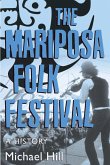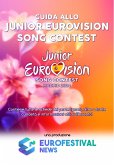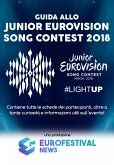The Eurovision Song Contest is one of the most important and iconic music events in the world. Since its inception in 1956, it has been a platform for artists from all over Europe (and beyond) to showcase their talent and connect with international audiences. Over the decades, Eurovision has produced countless hits and launched the careers of many artists to global fame. In this book, you will enjoy the biographies of the Eurovision winners, those artists who have not only emerged victorious at this event, but also the hearts of millions of viewers.
The journey through the history of Eurovision is a journey through time, culture and music. Each winner represents a unique piece of the European mosaic, reflecting the musical and social trends of their time. The first edition of the festival, held in Lugano, Switzerland, was won by Lys Assia with the song "Refrain". Her victory marked the beginning of what would become an annual tradition, uniting countries through music and providing a global stage for creativity and friendly competition.
As the festival grew in popularity, so did the ambitions of its participants. In 1958, André Claveau's victory for France with "Dors, mon amour" showed the power of romantic ballads. The 1960s saw a number of memorable performances, including Jacqueline Boyer with "Tom Pillibi" for France in 1960 and the iconic Sandie Shaw, who won for the UK in 1967 with "Puppet on a String." These victories highlighted the festival's growing prestige and its ability to create international stars.
The 1970s brought with it an explosion of musical diversity and innovative styles. ABBA, perhaps the most famous winners in Eurovision history, conquered the festival in 1974 with "Waterloo".
In 1988, a young Canadian singer named Céline Dion represented Switzerland and won with the song "Ne partez pas sans moi". This victory was a springboard to her global career, making her one of the most recognizable and beloved voices in the world. The 1990s continued this trend of launching international careers, with winners such as Ireland's Niamh Kavanagh in 1993 with "In Your Eyes" and Sweden's Charlotte Nilsson in 1999 with "Take Me to Your Heaven."
The new millennium brought greater diversity and inclusiveness to the festival. In 2004, Ruslana from Ukraine won with "Wild Dances," a performance that combined pop music with traditional Ukrainian dance and unmatched energy. This victory underscored Eurovision's ability to showcase regional cultures and its potential to reach a global audience. In 2006, heavy metal band Lordi from Finland surprised everyone with their victory with "Hard Rock Hallelujah," proving that the festival was open to a wide range of musical genres.
In 2012, Sweden's Loreen won with "Euphoria," a performance that was acclaimed for both her powerful vocals and visually stunning staging. Her victory became a highlight in recent Eurovision history, reminding the world of the festival's ability to produce performances that are as much visual spectacles as they are musical. In 2014, Conchita Wurst of Austria won with "Rise Like a Phoenix," a ballad that became an anthem of empowerment and acceptance, highlighting the social and cultural impact that Eurovision can have.
The life and work of these artists and many more over a few pages to remember the greatest musical event in history!
Dieser Download kann aus rechtlichen Gründen nur mit Rechnungsadresse in A, B, CY, CZ, D, DK, EW, E, FIN, F, GR, H, IRL, I, LT, L, LR, M, NL, PL, P, R, S, SLO, SK ausgeliefert werden.









